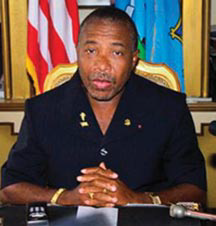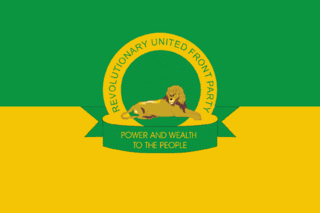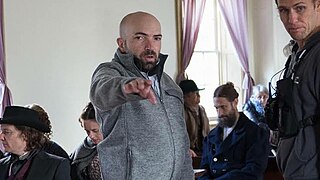
Sierra Leone, officially the Republic of Sierra Leone, is a country on the southwest coast of West Africa. It is bordered to the southeast by Liberia and by Guinea to the north. Its land area is 71,740 km2 (27,699 sq mi). It has a tropical climate and environments ranging from savannas to rainforests. As of the 2023 census, Sierra Leone has a population of 8,908,040. Freetown is both its capital and its largest city. The country is divided into five administrative regions, which are further subdivided into 16 districts.
Sierra Leone first became inhabited by indigenous African peoples at least 2,500 years ago. The Limba were the first tribe known to inhabit Sierra Leone. The dense tropical rainforest partially isolated the region from other West African cultures, and it became a refuge for peoples escaping violence and jihads. Sierra Leone was named by Portuguese explorer Pedro de Sintra, who mapped the region in 1462. The Freetown estuary provided a good natural harbour for ships to shelter and replenish drinking water, and gained more international attention as coastal and trans-Atlantic trade supplanted trans-Saharan trade.

Charles McArthur Ghankay Taylor is a Liberian former politician and convicted war criminal who served as the 22nd president of Liberia from 2 August 1997 until his resignation on 11 August 2003 as a result of the Second Liberian Civil War and growing international pressure.

The Revolutionary United Front (RUF) was a rebel group that fought a failed eleven-year war in Sierra Leone, beginning in 1991 and ending in 2002. It later transformed into a political party, which still exists today. The three most senior surviving leaders, Issa Sesay, Morris Kallon, and Augustine Gbao, were convicted in February 2009 of war crimes and crimes against humanity.

The Liberians United for Reconciliation and Democracy (LURD) was a rebel group in Liberia that was active from 1999 until the resignation of Charles Taylor ended the Second Liberian Civil War in 2003. While the group formally dissolved after the war, the interpersonal linkages of the civil war era remain a key force in internal Liberian politics.

The Vai are Mandé peoples that live mostly in Liberia, with a small minority living in south-eastern Sierra Leone. The Vai are known for their indigenous writing system known as the Vai syllabary, developed in the 1820s by Momolu Duwalu Bukele and other Vai elders. Over the course of the 19th century, literacy in the writing system became widespread. Its use declined over the 20th century, but modern computer technology has enabled a revival.
The Sierra Leonean Civil War (1991–2002) was a civil war in Sierra Leone that began on 23 March 1991 when the Revolutionary United Front (RUF), with support from the special forces of Liberian dictator Charles Taylor's National Patriotic Front of Liberia (NPFL), intervened in Sierra Leone in an attempt to overthrow the Joseph Momoh government. The resulting civil war lasted almost 11 years, and had over 50,000, up to 70,000, casualties in total; an estimated 2.5 million people were displaced during the conflict, and widespread atrocities occurred.

The Accra Ghana Temple is the 117th operating temple of the Church of Jesus Christ of Latter-day Saints.

The back-to-Africa movement was a political movement in the 19th and 20th centuries advocating for a return of the descendants of African American slaves to the African continent. The movement originated from a widespread belief among some European Americans in the 18th and 19th century United States that African Americans would want to return to the continent of Africa. In general, the political movement was an overwhelming failure; very few former slaves wanted to move to Africa. The small number of freed slaves who did settle in Africa—some under duress—initially faced brutal conditions, due to diseases to which they no longer had biological resistance. As the failure became known in the United States in the 1820s, it spawned and energized the radical abolitionist movement. In the 20th century, the Jamaican political activist and black nationalist Marcus Garvey, members of the Rastafari movement, and other African Americans supported the concept, but few actually left the United States.
The history of African-American settlement in Africa extends to the beginnings of ex-slave repatriation to Africa from European colonies in the Americas.
Robert Christopher "Bob" Gay has been a general authority of the Church of Jesus Christ of Latter-day Saints since 2012. He has been a member of the church's Presidency of the Seventy since March 2018. Prior to becoming a general authority, Gay was the managing director, co-founder, and chief executive officer of Huntsman Gay Global Capital (HGGC), a private equity firm headquartered in Palo Alto, California, with offices in Florida, Massachusetts, and Utah.

The Church of Jesus Christ of Latter-day Saints in Liberia refers to the Church of Jesus Christ of Latter-day Saints and its members in Liberia. At year-end 1986, there were fewer than 100 members in Liberia. In 2022, there were 20,335 members in 67 congregations.

Sierra Leone is officially a secular state, although Islam and Christianity are the two main and dominant religions in the country. The Sierra Leone Government is constitutionally forbidden from establishing a state religion, though Muslim and Christian prayers are usually held in the country at the beginning of major political occasions, including presidential inauguration.

The Church of Jesus Christ of Latter-day Saints in Sierra Leone refers to the Church of Jesus Christ of Latter-day Saints and its members in Sierra Leone. In 2022, Sierra Leone ranked as having the third most LDS Church members per capita in Africa, behind Cape Verde and Liberia.

The Church of Jesus Christ of Latter-day Saints in Ivory Coast refers to the Church of Jesus Christ of Latter-day Saints and its members in Ivory Coast. At year-end 1989, there were fewer than 200 members in Ivory Coast. In 2023, there were 63,058 members in 262 congregations.

The Saratov Approach is a 2013 American dramatic thriller film written and directed by Garrett Batty. It depicts the 1998 kidnapping of two missionaries of the Church of Jesus Christ of Latter-day Saints in Saratov, Russia. It began a limited release on October 9, 2013, solely in Utah. Subsequently, the film was released throughout the Mormon Corridor. On January 10, 2014, the film began an expanded limited release throughout the United States.

The Sierra Leone Creole people are an ethnic group of Sierra Leone. The Sierra Leone Creole people are descendants of freed African-American, Afro-Caribbean, and Liberated African slaves who settled in the Western Area of Sierra Leone between 1787 and about 1885. The colony was established by the British, supported by abolitionists, under the Sierra Leone Company as a place for freedmen. The settlers called their new settlement Freetown. Today, the Sierra Leone Creoles are 1.2 percent of the population of Sierra Leone.

Melissa Leilani Larson is an American writer and playwright based in Salt Lake City, Utah. Mormon literature critic Michael Austin described her as "one of the true rising stars of Mormon literature." Producer Jeremy Long described her as the "best playwright in Utah." Her plays commonly feature women in leading roles, and some center around the faith of members of the Church of Jesus Christ of Latter-day Saints.

Garrett Batty is an American film director, writer, and producer known for his film The Saratov Approach. He is a graduate of Brigham Young University and a native of Park City, Utah. He is a member of the Church of Jesus Christ of Latter-day Saints, and his films are part of Mormon cinema, but with a more general audience. He has written, directed, and produced four full-length films, including Freetown (2015) and Out of Liberty (2019), and will begin work on a fifth in 2020. For Freetown, he was awarded the 2015 Ghana Movie Award for Best Screenplay alongside Melissa Leilani Larson.
Alphonse Menyo, is a Ghanaian actor. He is best known for his roles in the films Freetown and Gold Coast Lounge.














